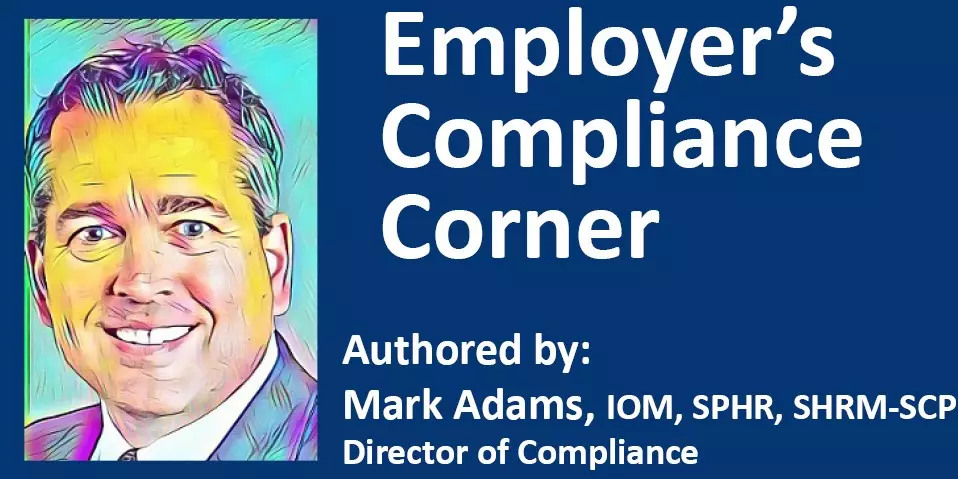
Usually, I write a blog that circles around an employment-related compliance topic. However, today, I am going to branch out and write about the U.S. Supreme Court decision of Dobbs v. Jackson Women’s Health Organization which reversed the U.S. Supreme Court’s long-standing case precedent of Roe v. Wade.
Now in doing so, I am not here to advocate for one side or the other – I am not here to endorse or condemn the ruling. There are pundits and legal scholars on both sides who are very passionate about advocating their position(s). I will defer to them for carrying their respective torches.
Rather, I am writing today about the potential considerations that some employers may encounter in the wake of the decision. Some of you, may think “this case wasn’t about an employer, or some employment-related law?” And that is true.
But the decision, nonetheless, may impact some employers. Consequently, and as I further explain below, such employers may be faced with decisions that they would have not needed to consider in the past but are now facing as they are forced to delve into employees’ personal lives more than they ever wanted to go.
Before Dobbs, all states were for the most part on the same playing field. Abortion was viewed as a federal constitutional right preserved in all 50 states, and with that, we as employers did not have to worry about our employees being able to access this procedure.
Now, that is no longer the case. The tallies somewhat vary. According to Reuters, upwards to 22 states may make abortion illegal either immediately or eventually. For employers operating exclusively in New England states such as Massachusetts, Connecticut and Rhode Island, the impact may be minimal or even non-existent as these states have laws on the books to protect abortions and some have even taken steps to sign Executive Orders to further strengthen those protections.
But for employers who have employees situated elsewhere (whether at a satellite office or even working out of their home in another state) or have family members situated elsewhere who are on an employer’s health plan, what is the outlook there?
For those affected employers, they may want to consider whether (or not) to take further action. Employers today are mindful of the employee experience and what we as employers must do to attract talent, retain talent, and keep them engaged. As workplaces have evolved from maintaining “work-life balance” towards moving to “work-life integration” through the adaption of technology, hybrid work schedules and more, employers are now faced with what steps, if any, they may need to take on a given subject as societal events get pulled into the workplace conversation.
What do your own benefits look like? Are you concerned about employees’ or dependents’ ability to access this procedure? Will remote workers or employees or spouses or dependents who are on your plans but working or residing in other states that may outlaw the procedure be able to go elsewhere and have that covered under your existing health plan(s)? For companies with health reimbursement arrangements (HRA’s) or other plans, are they designed to reimburse for costs related to these procedures or travel considerations currently? If an employer has concerns, they may want to consider reviewing their plan documents and consulting with their broker or plan administrator. If this is not a concern, then you don’t need to address it.
What about time off and leave policies? Are they flexible enough as comprised to meet potential emerging needs to go elsewhere for these procedures, or will further refinement be needed if there is a concern there?
There is the time away from work, but then there is also the cost of these undertakings. Will such travel be eligible for reimbursement under your existing benefits or practices or not?
Is it a combination of the above? Is it none of the above?
In evaluating the impact on their existing workforces, some larger employers such as Disney and Dick’s Sporting Goods have announced they will subsidize travel costs for employees seeking to travel to obtain the procedure. Amazon will subsidize costs related to employees looking to get the procedure as well.
Then, there is the question of prospective talent. Not all employers have the vast resources that an Amazon or a Disney or some other national corporation may have. But will the current and next generation of workers be evaluating your organization on at least some of these levels before throwing their hat into the ring on a position that you may be recruiting for? As the recruiting net gets geographically broader and as an employer’s operating reach grows, these implications can therefore have both tactical and strategic implications.
And, lest we forget, there is your organizational culture, the views of leadership (or depending upon your organizational structure – ownership) along with your existing workforce to think about too.
Legislatively, we don’t know what may come next. Only time will tell. But for some employers, the impact of Dobbs may require an evaluation of several factors with the potential for action sooner rather than later.
Thank you for viewing this article in EANE’s Employer’s Compliance Corner Blog, Authored by our Director of Compliance, Mark Adams. Please visit again soon to stay up to date on today’s compliance updates and best practices for employers.